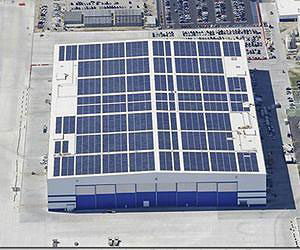The US must prepare our electric system for massive solar deployment, says MIT in a report, The Future of Solar Energy.
Solar has the best potential to meet humanity’s long-term energy needs while cutting greenhouse gas emissions, researchers say, but more effective policies and lower cost technologies are needed to get there.
Importantly, the report calls for a National Renewable Portfolio Standard and policies that reward solar production rather than installation.
It also calls for:
- federal research and development (R&D) to advance low-cost, large-scale energy storage technologies.
- Common rules and procedures to permit and connect solar systems to the grid should be implemented regionally or nationally.
- Solar leasing should be available in every state
- Federal tax incentives for solar should not be allowed to expire unless fossil fuel subsidies do.
Alongside technologies and policies that push dramatic growth in solar, fossil fuels will have to be "appropriately penalized for carbon dioxide emissions, with – most likely – substantially reduced subsidies."
Solar at a Boeing factory:

More Advanced Solar Technologies Needed
In recent years we "have seen rapid growth in installed solar generating capacity, great improvements in technology, price, and performance, and the development of creative business models that have spurred investment in residential solar systems. Nonetheless, further advances are needed to enable a dramatic increase in the solar contribution at socially acceptable costs," the report says.
They point to the drawbacks of both conventional silicon and thin-film solar and emerging variations that could provide superior performance with lower manufacturing complexity and module costs.
Since the private sector will likely view these R&D investments as risky, even though the payoff could be enormous, the federal government must step in, they say.
"We strongly recommend that a large fraction of federal resources available for solar R&D focus on environmentally benign, emerging thin-film technologies that are based on Earth-abundant materials. The recent shift of federal dollars for solar R&D away from fundamental research of this sort to focus on near-term cost reductions in c-Si technology should be reversed."
Read MIT’s report:

Thank you very much – will print now & mail to elec. engineer friend.